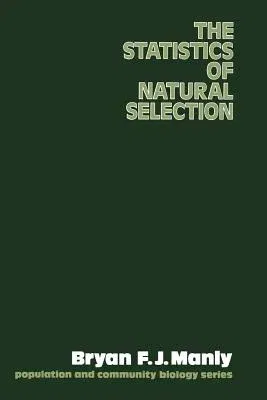Brian F Manly
(Author)The Statistics of Natural Selection on Animal Populations (Softcover Reprint of the Original 1st 1985)Paperback - Softcover Reprint of the Original 1st 1985, 8 November 2013

Qty
1
Turbo
Ships in 2 - 3 days
In Stock
Free Delivery
Cash on Delivery
15 Days
Free Returns
Secure Checkout
Part of Series
Molecular Biology Intelligence Unit
Print Length
484 pages
Language
English
Publisher
Springer
Date Published
8 Nov 2013
ISBN-10
940108646X
ISBN-13
9789401086462
Description
Product Details
Author:
Book Edition:
Softcover Reprint of the Original 1st 1985
Book Format:
Paperback
Country of Origin:
NL
Date Published:
8 November 2013
Dimensions:
23.39 x
15.6 x
2.57 cm
ISBN-10:
940108646X
ISBN-13:
9789401086462
Language:
English
Location:
Dordrecht
Pages:
484
Publisher:
Weight:
698.53 gm

